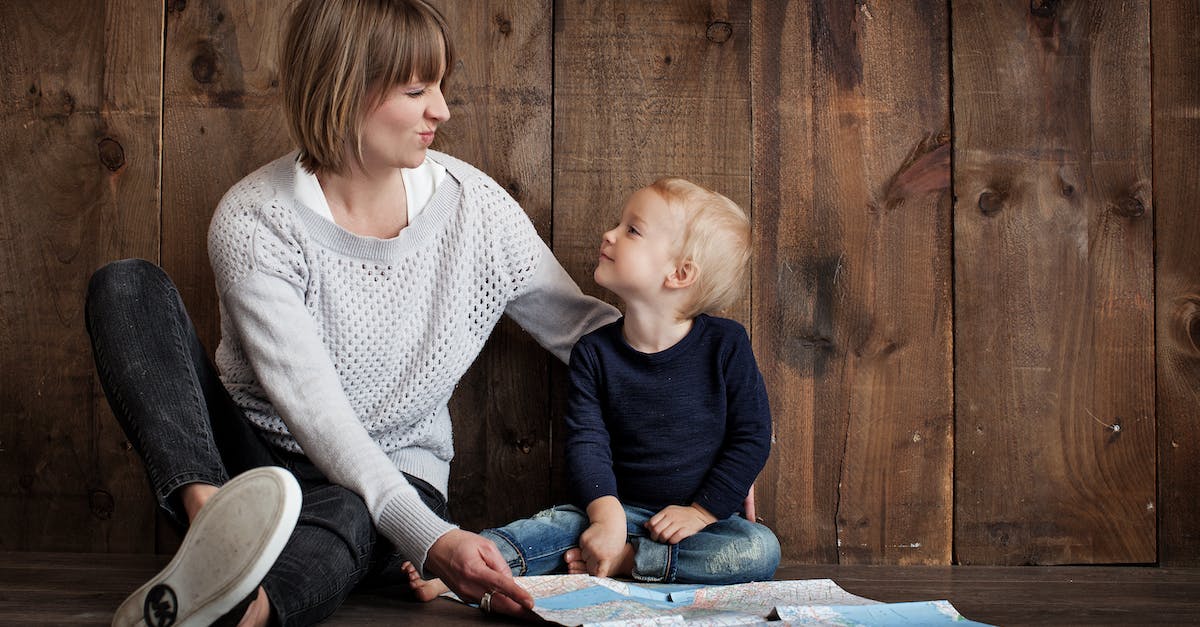Are you tired of your kids being rude to others, or simply unable to understand how others feel? Well, have no fear, because developing empathy is a skill that can be taught and nurtured at any age. As parents, we want our children to grow up to be kind, compassionate individuals who understand the importance of considering others’ feelings. So, how can you help your kids develop empathy?
Firstly, lead by example! If your child sees you exhibiting empathy towards others, they are more likely to do the same. With a little practice, normal, everyday situations can become valuable lessons in empathy-building. For example, if someone drops something, take a moment to help them pick it up. Your child will notice, and you can use that opportunity to discuss how that person might have felt and how they would feel if someone helped them in a similar situation.
Secondly, encourage your children to play with others and reinforce positive social interactions. There’s no better way to develop strong social skills than through friendship, hanging out and learning how to deal with one another’s different personalities. Empathetic behavior can also extend beyond humans; caring for animals, being mindful of nature and even taking care of plants can all help to instill empathy in your children.
And lastly, remember to praise and acknowledge your children’s positive behavior. Encouragement can be a powerful tool in developing a sense of empathy in children. Your child is more likely to repeat behaviors that lead to positive reinforcement. Empathy is a valuable skill that can be developed throughout your child’s life, so keep in mind we’re all human, nothing is perfect, and that with time and patience, you’ll succeed together.
What is Empathy and Why is it Important for Kids to Develop it?

Empathy is the ability to understand and share the feelings of others. It is an essential skill that every child should develop as it helps them to form and maintain healthy relationships with people. When children learn empathy, they develop a sense of kindness, compassion, and respect towards others, which helps them to become better individuals.
Here are some tips on how to help your kids develop empathy:
- Teach them how to identify emotions: Children need to learn how to identify their own emotions and those of others, so they can understand the feelings of other people. You can do this by asking them how they are feeling and encouraging them to express their emotions.
- Show them how to be kind to others: Teach your children the importance of being kind to others, even when they are feeling upset or angry. Show them how to be thoughtful and considerate towards others, and encourage them to do random acts of kindness. This will help them to develop empathy towards others.
- Encourage them to listen: When children listen to others, they are showing that they care about their feelings. Encourage your children to listen carefully to their friends and family members, and to pay attention to what they are saying. This will help them to develop a better understanding of other people’s perspectives and feelings.
- Teach them to communicate effectively: Good communication is key to building strong relationships with others. Teach your children how to communicate effectively, including active listening, using “I” statements, and expressing their emotions in a respectful and clear manner. This will help them to empathize with others and build stronger relationships.
In conclusion, developing empathy is crucial for children to become kind, compassionate individuals. By teaching them how to identify emotions, be kind to others, listen, and communicate effectively, you can help your children to develop empathy and become better people.
Teaching Your Kids How to Put Themselves in Others’ Shoes

- Teach them to actively listen: Instead of simply waiting for their turn to talk, encourage your kids to truly listen to what others are saying. This helps them understand another person’s perspective and emotions. Encourage them to ask follow-up questions to show they’re engaged and interested in what the other person is saying.
- Model empathy yourself: Children learn by watching their parents, so it’s important to model empathy in daily interactions. Talk about how you feel and how you empathize with others in front of your kids. They will pick up on these cues and learn how to react more empathetically in turn.
- Encourage them to express their own emotions: Give children a safe space to express their own emotions and feelings. This not only helps them develop their emotional intelligence, but also makes it easier for them to empathize with others since they have a better understanding of themselves.
- Have them volunteer or participate in community service: Giving back to the community can help kids see the world through a different lens, and they get a chance to interact with people from different backgrounds. Whether it’s volunteering at a soup kitchen or participating in a charity event, these experiences help kids realize the struggles others may face and find ways to help them.
- Read books or watch movies with empathetic characters: Books and movies can be a great tool to teach empathy, especially when they feature characters who show empathy towards others. Encourage your kids to read or watch stories that show the importance of putting yourself in someone else’s shoes.
Empathy is a crucial aspect of emotional intelligence, and it’s never too early to start teaching empathy to children. By following these tips, you can help your kids develop empathy and become kind, compassionate individuals.
Understanding and Respecting Others’ Feelings

- Teaching Perspective Taking: One of the best ways to develop empathy in children is to teach them to step into other people’s shoes. Encourage them to think about how they would feel if they were in someone else’s situation. Ask questions like “How do you think that person feels?” or “What do you think they might be going through?”. This simple exercise can help kids develop compassion and caring for others.
- Validating Feelings: It’s important to teach children to validate their own feelings, as well as others’. When someone tells them how they feel, they should try to acknowledge and respect those feelings. This means saying things like “I can see that you’re upset” or “It sounds like you’re feeling sad”. When kids learn to validate others’ feelings, they are more likely to develop empathy and compassion.
- Modeling Empathetic Behavior: Children learn a lot from the adults around them. When parents model empathetic behavior, it can have a big impact on their kids. Take time to demonstrate empathy in front of your children by showing concern and kindness towards others, whether it’s a neighbor who is going through a tough time or a stranger who needs help. Children will learn from your actions, and they’ll be more likely to develop empathy themselves.
By teaching your children these methods, they can begin to better understand and respect others’ feelings, which builds strong connections and ultimately leads to a more positive and empathetic society.
Teaching Your Kids to Communicate Effectively

- Teach Active Listening: Active listening is a fundamental aspect of effective communication. Kids need to learn how to give their full attention to others when they are speaking. Encouraging your child to keep eye contact, ask clarifying questions and summarize what others say are good techniques for active listening. This will help your child empathize with others and develop better communication skills.
- Use Positive Communication: Teaching your child to communicate positively can go a long way in developing empathy. Encourage your child to use kind and encouraging words when communicating with others, and avoid negative language that can be hurtful. Children must learn how to communicate in ways that are respectful and encouraging, and this will help them develop empathy and better relationships.
- Practice Nonverbal Communication: A lot of communication happens through body language and facial expressions, so it’s critical to teaching kids how to understand nonverbal cues. Encourage your child to pay attention to others’ body language and facial expressions as they communicate. Teach them to control their own nonverbal cues by mimicking positive body language and maintaining a relaxed and open posture. This will help your child better read others’ emotions and show empathy towards them.
- Encourage Perspective-taking: Perspective-taking is the ability to look at the world from another person’s point of view. Teaching your child to understand other people’s perspectives is a great way to help them develop empathy. Encourage your child to talk to others about their experiences, be curious and ask questions, and try to put themselves in others’ shoes. When children can appreciate others’ perspectives, they can communicate with greater understanding and show empathy towards others.
Teaching your children effective communication skills is a great way to foster empathy, and they will all benefit as they navigate the world. Understanding how to listen actively, communicate positively, and read nonverbal cues are fundamental communication skills. Encouraging your child to try to take others’ perspectives will help them develop empathy and better relationships with others.
Encouraging Kindness and Compassion in Your Children

- Model Empathy: Children learn by example, so it’s important to model empathy in your own behavior. Show your child how you listen and respond kindly to others’ feelings and needs.
- Teach Emotional Intelligence: Help your child identify emotions in themselves and others. Teach them to express their own feelings in a healthy way and to recognize when others might be feeling sad, happy, or scared.
- Praise Empathetic Behavior: Notice and praise your child when they demonstrate empathy towards others. Say things like “I noticed how kind you were to your friend when they were upset, that was really thoughtful of you.”
- Read Books about Empathy: There are many great children’s books that teach empathy in fun and relatable ways. Reading these books with your child can spark conversations about empathy and help them understand its importance.
- Encourage Volunteer Work: Volunteering can be a great way for children to develop empathy for those in need. Encourage your child to get involved in community service projects or volunteer work to help others and learn about different perspectives.
By using these tips to encourage kindness and compassion in your children, you can help them develop important social and emotional skills that will serve them well throughout their lives.
Modeling Empathy and Compassion as a Parent

- Listen Attentively: One of the most important things you can do as a parent is to truly listen to your child when they speak. When you give them your undivided attention and empathize with what they are saying, your child will feel heard and understood, and they will be more likely to develop the same skill with others.
- Show Kindness and Compassion: Children learn by example, so it’s important to lead by example! Show your child how to be kind and compassionate, not just with your words, but also with your actions. Doing good deeds together as a family can be a great way to demonstrate the importance of being empathetic towards others.
- Teach Them About Feelings: Talk to your child about different emotions and how they can affect people. Encourage them to ask questions when they don’t understand why someone might be feeling a certain way, and provide them with age-appropriate answers. This will help your child develop an understanding of why empathy is so important.
- Show Them Different Perspectives: Help your child see situations from different points of view. By doing this, you are showing them that there are many different ways to look at a situation, and that it’s important to take all perspectives into consideration before making a judgement or decision. Encourage them to ask questions and be curious about different perspectives.
- Encourage Them to Help Others: Volunteering or doing community service with your child can be a great way to help them develop empathy. When your child sees others in need and has the opportunity to help, they will begin to understand the importance of compassion and helping others. Encourage them to continue helping others in their daily lives as well!
- Praise Empathy: When you see your child showing empathy towards others, be sure to praise them. This positive reinforcement will help to reinforce the importance of empathy and compassion, and encourage your child to continue developing these important skills.
Remember, developing empathy takes time and practice. By modeling empathy as a parent, you are helping your child learn this important life skill that will serve them well throughout their lives.
Conclusion
So there you have it folks – a list of tips and tricks to help your kids develop empathy. As a mom, it’s important to me that my kids grow up to be kind, compassionate individuals who understand the importance of caring for others. That’s why I’m always on the lookout for ways to encourage empathy in my kiddos!
But let’s be real here – sometimes it can feel like an uphill battle. Kids can be self-centered little creatures (bless their hearts), and getting them to think outside of their own little world can be a challenge. That’s why I love these tips – they’re easy, practical, and effective. Whether you’re snuggling up for a story, volunteering at the local shelter, or just having a heart-to-heart with your little one, you can make a difference in your child’s ability to connect with and care for others.
So go forth and raise some empathetic kiddos! Trust me, it’ll pay off in spades. After all, the world could always use a little more kindness and compassion, am I right?





